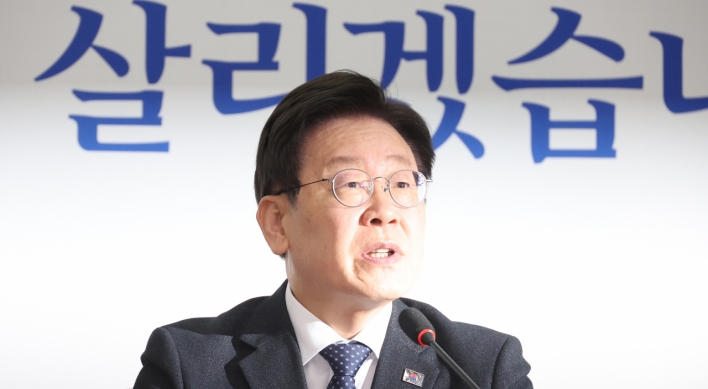[Editorial] The case of Moneual
Company built on fraud abuses exports financing
By Korea HeraldPublished : Nov. 4, 2014 - 20:46
Moneual, a maker of home appliances such as home theater PCs and robot vacuum cleaners, was once lauded as an adorable up-and-coming small enterprise. Investors, government officials and even Bill Gates hailed the company as a champion of innovation.
On paper, the company’s performance was more than impressive. Moneual, founded in 2004, joined the club of firms whose sales exceeded 1 trillion won last year, boasting 1.27 trillion won in sales and 110 billion won in operating profit.
No wonder it was inducted into the ranks of the “Hidden Champions,” a group of promising small- and medium-sized enterprises named by the Export-Import Bank of Korea. No one questioned the value and potential of this marvelous tech firm which grew by an average of 50 percent each year.
As it turned out, this success story was nothing but a fraud. The company went bankrupt last month, and its founder and two other executives were put behind bars on charges of tax evasion, fraud and operating slush funds.
What happened was that the founding CEO, Park Hong-seok, fabricated documents to overstate the value of home theater PCs shipped overseas. He used them to receive export financing amounting to 3.2 trillion won over a six-year period, starting in 2009.
The company even operated a bogus plant and storage facility in Hong Kong, which were staffed by temporary workers only when bankers or trade officials visited. It sounds like a perfect racket.
Using the ill-gotten money, Park operated slush funds worth 44.6 billion won, and he brought 12 billion won of this into Korea to use personally, for gambling, buying a private mansion and paying credit card bills. Creditor banks have yet to recover 674.5 billion won.
What leaves us speechless is that few in the banks, state-run trade insurers, customs and tax agencies, and financial watchdogs knew about this large-scale fraud during the past six years. It truly is incomprehensible that the case came to the fore only after the company filed for bankruptcy.
This proves that there must be many loopholes in the country’s export financing and bank loans. The Moneual case should prompt an extensive review and an overhaul, if necessary, of the export finance system.
The prosecution should get to the bottom of the case. We know that there must be corrupt officials at banks and trade-related agencies involved in a case like this.
On paper, the company’s performance was more than impressive. Moneual, founded in 2004, joined the club of firms whose sales exceeded 1 trillion won last year, boasting 1.27 trillion won in sales and 110 billion won in operating profit.
No wonder it was inducted into the ranks of the “Hidden Champions,” a group of promising small- and medium-sized enterprises named by the Export-Import Bank of Korea. No one questioned the value and potential of this marvelous tech firm which grew by an average of 50 percent each year.
As it turned out, this success story was nothing but a fraud. The company went bankrupt last month, and its founder and two other executives were put behind bars on charges of tax evasion, fraud and operating slush funds.
What happened was that the founding CEO, Park Hong-seok, fabricated documents to overstate the value of home theater PCs shipped overseas. He used them to receive export financing amounting to 3.2 trillion won over a six-year period, starting in 2009.
The company even operated a bogus plant and storage facility in Hong Kong, which were staffed by temporary workers only when bankers or trade officials visited. It sounds like a perfect racket.
Using the ill-gotten money, Park operated slush funds worth 44.6 billion won, and he brought 12 billion won of this into Korea to use personally, for gambling, buying a private mansion and paying credit card bills. Creditor banks have yet to recover 674.5 billion won.
What leaves us speechless is that few in the banks, state-run trade insurers, customs and tax agencies, and financial watchdogs knew about this large-scale fraud during the past six years. It truly is incomprehensible that the case came to the fore only after the company filed for bankruptcy.
This proves that there must be many loopholes in the country’s export financing and bank loans. The Moneual case should prompt an extensive review and an overhaul, if necessary, of the export finance system.
The prosecution should get to the bottom of the case. We know that there must be corrupt officials at banks and trade-related agencies involved in a case like this.
-
Articles by Korea Herald








![[Hello India] Hyundai Motor vows to boost 'clean mobility' in India](http://res.heraldm.com/phpwas/restmb_idxmake.php?idx=644&simg=/content/image/2024/04/25/20240425050672_0.jpg&u=)










